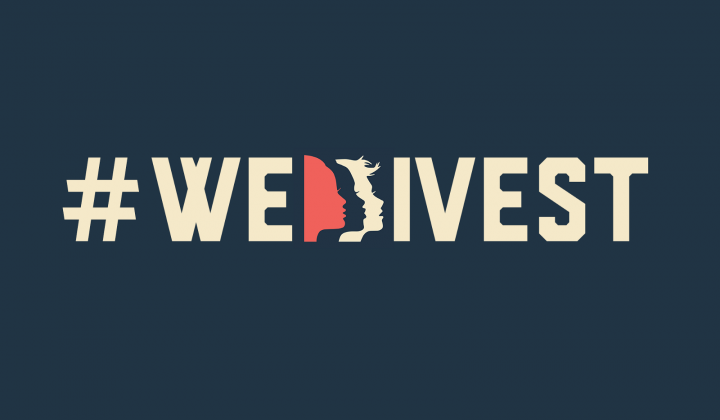Day 2 of #16DaysOfGlobal — Today we are sharing the work Women’s March Barcelona has done in the area of Global Divestment. We interviewed Cecilia Gomez-Engler, an organiser with Women’s March Barcelona about the work they have done and how people can be involved in the divestment movement.
How did Women’s March Barcelona become involved in the Global Divestment Movement?
Cecilia: We were interested in what was going on in the United States with the indigenous population in their fight against the Dakota Access Pipeline (DAPL). It was reported on a lot which was unique because not a lot of these issues get that much press at all.
Several of our members were interested in how we could raise our voices to help with this cause and after some research we came to find out that the DAPL was being funded by banks all over Europe. We were also became inspired by Women’s March Norway as well as PAAL Oslo who were both very involved in divestment in Norway and we learned from them about other groups that were doing divestment work in Europe.
What are the actions that Women’s March Barcelona has been able to undertake?
Cecilia: One of the first groups we connected with locally was: Ecologistas en Acción and Madrid Resistance and we partnered with them for our first Twitter-storm where we were protested BBVA — a bank headquartered out of Spain. BBVA has a branch in Texas called BBVA Compass which was putting money in DAPL. We did a Twitter protest which allowed greater notice for BBVA’s actions in their investment in DAPL but more so it solidified the bonds between local environmental groups for future actions.
Very soon after that twitter storm we found out that indigenous activists from Standing Rock were going to be touring Europe in the Stand Up For Standing Rock tour which we wanted to be a part of.
We got together with Madrid Resistance which is a U.S. focused resistance group and started working with them along with many other groups. This is really when we connected with other chapters within Women’s March Global and created a global #FeedTheResistance Action. This was a great action to be a part of as it allowed us to not only connect with the water protectors but learn about their work and why they were in Europe protesting against these banks.
One of the things about divestment is that it is a people’s movement and people can get a lot done with a little. There are three types of divestment: Personal (where you can take your money out of banks), Bank Investment (where banks pull their money out of projects, and City wide or Company Divestment (where cities can divest from fossil fuel projects). These three levels of divestment are what make the global divestment movement truly global. If people realise that their money is the money being poured into these fossil fuel projects around the world and that they can call on divestment in these three ways, we could see real change from cities and banks in global divestment.
One of the most recent actions we did was partner with BankTrack. BankTrack’s sole purpose is to find out where the money comes from for these large fossil fuel projects that are damaging the earth. BankTrack is very well aware of how money fuels the world and they called for pressure to be put on the Equator Principles. “The Equator Principles is a risk management framework, adopted by financial institutions, for determining, assessing and managing environmental and social risk in projects.”
We managed (in partnership with many other groups including Women’s March Global chapters) to pressure them to the point where they publicly responded which is something they have never done in its history. This was a great example of how public pressure can get these banks to stop and take notice.
What are the top three actions that people can take to participate in the Global Divestment movement?
- Find out if your bank is involved in fossil fuel projects at BankTrack.
- Find out about organisations in your city involved in Global Divestment whether it’s your local Women’s March group or orggroup.
- Check out Mazaska Talks: This is an indigenous rights groups which has developed toolkits about how to divest and how to build pressure around Global Divestment.
https://medium.com/@WM.Global/global-divestment-interview-with-womens-march-barcelona-543cb804b4d0
https://www.facebook.com/womensmarchglobal/










